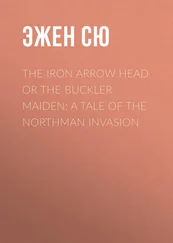She said nothing, just stared down at the desiccated linoleum curling in the sunlight by the door. She felt terrible. She shook her head. At last she said in a whisper, “It wouldn’t be so bad if I did feel this, Ben. It would be… understandable. The thing is, I don’t feel I’ve paid my dues, and I probably would never think that I had, even if I stayed here for the rest of my life. My reasons are more personal, selfish if you like, than that. You see,” she looked up, “it’s just that I look at what’s happening here and I despair.”
He smiled. “Don’t we all?”
“Do you know, Ben, in the five years I’ve been here, nothing, not one bloody thing, has got better. Nothing! The government is still corrupt, full of rapacious fat cats all sincere smiles one minute, and behind your back raking off profits that should go to help their people. And then the Chinese and the Europeans and Americans… using the continent like a gameboard. It makes me sick, Ben, what the Chinese are doing north of here.”
“They’ve brought wealth, jobs, security for thousands,” he said.
She stared at him. “You don’t really believe that, don’t you? You’re not toeing the party line?” She held up her hand and counted off points on her fingers. “Eighty-five per cent of all profits made in Xian City go straight back to the mafia fascists in Beijing who still have the gall to call themselves communists. Ten per cent is raked off by Ugandan middle-men, and the rest goes to middle-class Africans who employ locals at slave labour rates. And have you seen the slums growing up around Xian, and have you read the reports of prostitution in the area? The Chinese are no better than all the other colonials who came before them — in it for what they can take out. Christ, Ben, you’re Kenyan. You should know that!”
He was smiling at her, his calm face a picture of tolerance. “Anger doesn’t help anything, Sally.”
“I’m sorry… But do you know what angers me most, Ben? Me. I’m angry at myself for letting it get to me. I’m angry at myself for giving in.”
He frowned, as if at a complex mystery. He whispered, “Then don’t give in, my friend. Stay here.”
She held back her tears and said, “I can’t. I’ve made my decision.”
With an acuity belied by his bland, smiling face, Ben said, “It’s Geoff, isn’t it?”
She looked at him, surprised by his deduction. “Partly, but I was thinking of leaving before I met Geoff. So don’t go blaming him.”
She’d met Geoff Allen a year ago when he flew to Africa to cover the drought in the Karamoja region of northern Uganda. He’d impressed her with his naïve simplicity, his apolitical childishness: drinking with him one evening in her room, after she’d shown him around the Kallani medical complex, he had admitted that the reason he was a photo-journalist was that he hoped that by reporting the conditions of people less fortunate than himself, all around the world, the results of his work might provoke the citizens of Europe to do something about the poverty and injustice.
At first she had laughed at his political naivety, wondering where the hell to begin to put this big, handsome man right in his endearingly simplistic world-view. She had restrained herself, and after a few days in his company, as she toured with him around the various medical centres in the region, she had come to understand that his beliefs, no matter how misguided, were sincerely held. He believed that as an individual he could effect change at a higher level.
Perhaps, in Geoff Allen, she was reminded of the idealism and naivety she herself had possessed in her early twenties, which had now been eroded by cynicism and experience.
And as to what Geoff saw in her? After the first time they had made love, he’d held her and expressed his admiration at what she was doing here.
They’d seen each other just six times in the following year, and the last time — a snatched weekend in Kampala where Geoff was en route to cover the terrorist atrocities in Zambia — she had told him that she was leaving Uganda and returning to London.
“I’d be going back regardless of Geoff,” she said now, “but when I get back we’ll be buying somewhere together.”
Ben raised his glass. “I sincerely hope that you find happiness. Geoff is a good man.”
His approbation cheered her. Tomorrow Geoff was flying from London to Entebbe and making the long drive north — ostensibly to do another piece on the drought, in reality to see her. The thought made her a little drunk.
Ben raised his empty glass. “Would you like another whisky?”
She was wondering whether to accept the offer — despite the fact that she had an early shift in the morning — when the sound of gunfire rattled through the hot afternoon air.
HER FIRST IMPULSE was to rush to the door and see what was happening, and she was obeying the urge by the time common sense kicked in and suggested that it might not be the best idea. She stood in the doorway, staring across the compound. She saw the watchtower bloom in a sudden orange fireball, and a split-second later the sound of the explosion hit her. Three soldiers dropped from the tower, one by one, and lay twitching on the ground as they burned.
She watched with incredulity as another soldier ran towards his burning colleagues. He directed his rifle at them, and even as she watched she assumed that what he did then was an act of mercy: he unloaded a blast of bullets into each of the three flaming soldiers, instantly stilling their agonised spasming.
Then he moved to the gate, unbolted the locking mechanism, and hauled it open. A battered Ford utility truck, with a machine gun welded to its cross-bar, revved through the gate and into the compound.
Before she could move, the soldier turned, looked across the compound, and raised his gun at her.
She stared at him, uncomprehending. His name was Josef Makumbi, and she had chatted with him in the canteen during the periods when he was not manning the watchtower.
He yelled something at her.
Behind her, she felt Ben’s hand on her arm, drawing her back into the room.
Josef fired. The bullets smacked into the timber above her head. He yelled again. “Here! Both of you!”
She stepped forward, sensing Ben behind her. She looked across at the corpses of Josef’s colleagues. They were still burning. She had the absurd urge to ask him why he had killed his friends.
Ben whispered to her, “Be calm. Do exactly as he says. We will be okay, Sally.”
Two men leapt from the cab of the truck. One was a Somali, and the other Arabic. A third terrorist, another Arab, remained on the flat-bed, manning the machine gun. He turned it on Sally and Ben as they moved across the compound towards the government soldier.
She caught his eyes. “Josef?”
The Somali and the Arab looked around the compound, spoke rapidly, and came to some decision. The Arab spoke to Josef in the local language. Josef nodded and twitched his rifle towards Sally and Ben.
“Get onto the back of the truck. Move! Do as I say or I’ll shoot.”
Sally stared at him. “Josef, how can you…?”
Ben’s hand gripped her upper arm and urged her towards the truck. “Be silent!”
She allowed herself to be propelled along. She should have felt fear, then — she realised much later — but all she experienced at the time was bewilderment at Josef’s treachery.
Ben assisted her onto the flat-bed. The machine-gunner swivelled his weapon and trained it on them. As they knelt on the corrugated bed of the truck, Josef ordered them to place their hands behind their backs. The Arab tied their wrists with twine, the cord digging into her flesh.
With a touch of sadism she came to see, later, as characteristic of him, the Arab prodded her between the shoulder blades. Unable to bring her hands up to cushion her fall, she fell face down and smacked the metal deck with her cheek. Ben fell beside her.
Читать дальше












